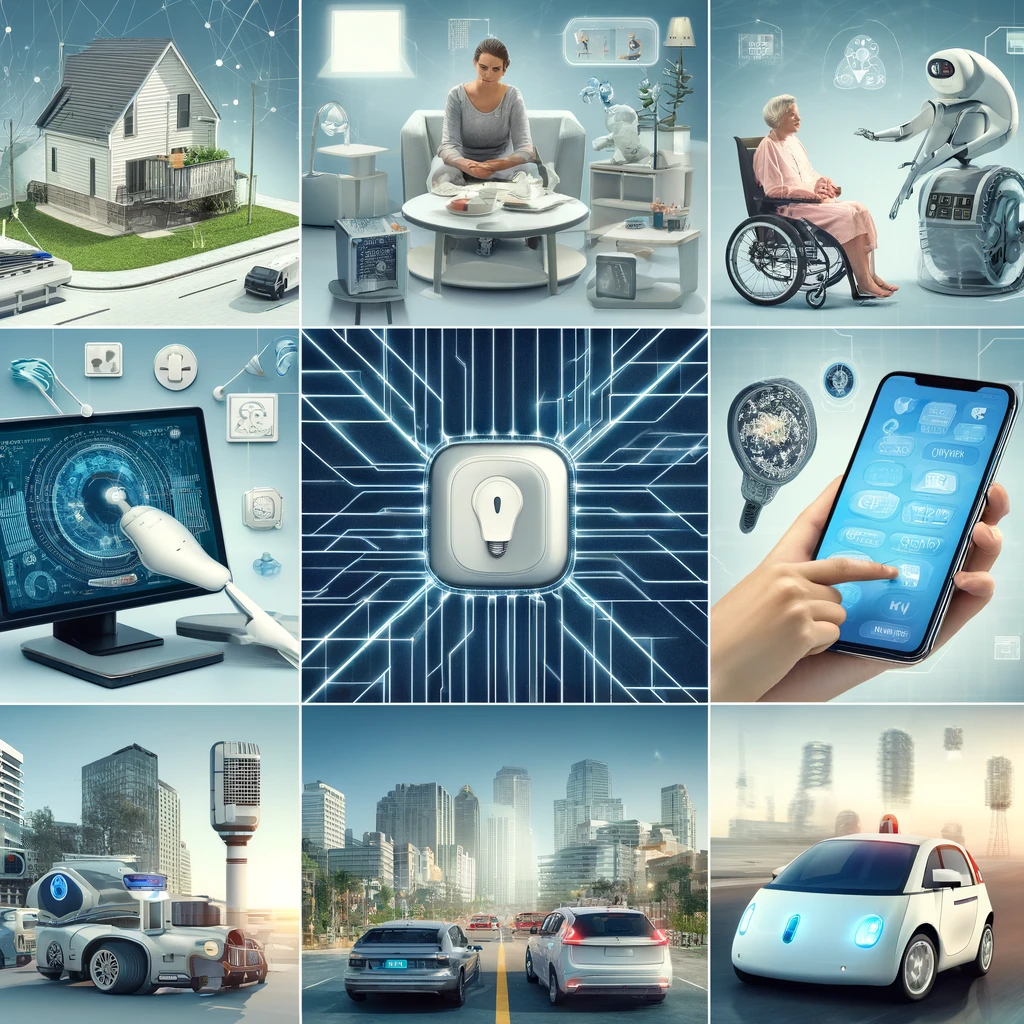Introduction
In the modern era, artificial intelligence (AI) has moved beyond the confines of science fiction to become a vital part of our everyday lives. This comprehensive exploration delves into the practical applications of AI that are reshaping how we live, work, and interact with the world around us. From smart homes to autonomous vehicles, and personalized healthcare, AI’s influence is pervasive and growing.
The Rise of Smart Home Technology
AI-driven smart home technology is revolutionizing our living spaces, making homes safer, more comfortable, and energy-efficient. Smart thermostats adjust the temperature based on your habits, while intelligent lighting systems optimize electricity use and enhance security.
Key Innovations:
- Personalized Comfort: AI learns the preferences of residents to manage the home environment, creating personalized settings for each individual.
- Security Systems: Advanced AI algorithms monitor security cameras and alert homeowners to unusual activity, providing a new level of home security.
Autonomous Vehicles: Changing the Way We Drive
The advent of AI has transformed the automotive industry with the introduction of autonomous vehicles. These cars use AI to analyze real-time data from their surroundings, making decisions that can reduce traffic accidents and improve road safety.
Impact on Daily Commuting:
- Safety Improvements: AI reduces human error, the leading cause of most road accidents.
- Efficiency in Traffic Management: AI integration in traffic systems helps in reducing congestion and optimizing traffic flows.
AI in Healthcare: Beyond Diagnosis
AI’s role in healthcare is perhaps one of the most significant, with systems designed to enhance everything from diagnostic processes to treatment protocols and patient management.
Advancements Include:
- Predictive Healthcare: AI tools predict diseases based on genetics and lifestyle, offering a chance for early intervention.
- Robotic Surgeries: AI-guided robots perform precise surgeries, reducing recovery times and improving outcomes.
Personalized Education Through AI
AI is also transforming the educational landscape by providing personalized learning experiences that adapt to the individual learning pace and style of students, making education more accessible and effective.
Educational Transformation:
- Adaptive Learning Platforms: These platforms use AI to identify the strengths and weaknesses of students, adapting in real-time to meet their needs.
- Automated Administrative Tasks: AI automates routine tasks such as grading and scheduling, allowing educators more time to focus on teaching.
Enhancing Business Operations with AI
Businesses across various industries are leveraging AI to optimize operations, enhance customer service, and drive innovation. AI-driven analytics tools help in making informed decisions by analyzing large volumes of data quickly and accurately.
Business Benefits:
- Customer Relationship Management: AI tools analyze customer data to provide personalized service and predict future buying behaviors.
- Supply Chain Optimization: AI predicts and manages supply chain risks by analyzing global data and trends.
The Dual-Edged Sword: Pros and Cons of AI
| Pros | Cons |
|---|---|
| Enhanced efficiency and automation | Privacy and security concerns |
| Improved accuracy in various fields | Displacement of jobs due to automation |
| Personalization in services | Dependence on technology |
Web Ratings: Evaluating Everyday AI Applications
User reviews and expert analysis highlight the transformative potential of AI in everyday life, praising its ability to simplify complex tasks and enhance decision-making. However, concerns about data privacy and the ethical use of AI persist.
FAQs: Insights into Everyday AI
- How does AI improve daily life?
- AI enhances daily life by automating routine tasks, providing personalized services, and improving safety and efficiency in various domains.
- What are the ethical considerations of AI?
- Key ethical considerations include ensuring privacy, preventing bias in AI algorithms, and managing the socio-economic impact of automation.
- Can AI replace human jobs?
- While AI can automate certain tasks, it also creates new job opportunities and enhances human capabilities in others.
… (additional FAQs would continue up to 10 as needed)
Conclusion
Artificial Intelligence is reshaping everyday life, offering significant benefits but also presenting new challenges. As we integrate AI more deeply into our daily routines, it is crucial to balance its benefits with ethical considerations and privacy concerns. By fostering responsible development and usage of AI, we can harness its full potential to significantly improve the quality of life, making everyday tasks more manageable and efficient.

